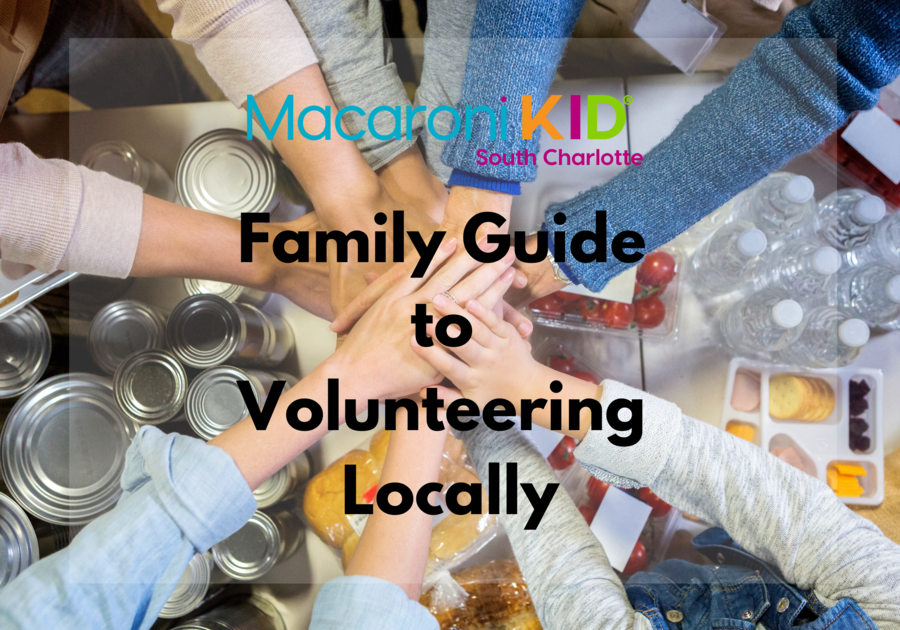Volunteering with your children can be one of the most enriching experiences you share as a family. Not only does it foster a sense of community and empathy, but it also instills values of kindness and service in the next generation. Here’s a look at why volunteering is important, how to find suitable opportunities, and how to reinforce these values at home.
Why Kids Should Volunteer
- Fosters Empathy and Compassion: Volunteering exposes kids to diverse perspectives and circumstances, helping them develop empathy for others. It teaches them to understand and appreciate different backgrounds and challenges.
- Builds Life Skills: Participating in volunteer activities helps children develop essential skills such as teamwork, leadership, communication, and problem-solving. These skills are invaluable as they grow and navigate life.
- Strengthens Family Bonds: Volunteering together provides a shared experience that can deepen your family’s connection. Working side by side on meaningful projects can create lasting memories.
- Encourages Responsibility: By giving back, kids learn the importance of being part of a community and the impact of their actions. This sense of responsibility can carry over into other areas of their lives.
- Boosts Self-Esteem: Completing volunteer projects can give children a sense of accomplishment. Knowing they’ve made a difference, no matter how small, boosts their confidence and self-worth.
Where to Find Volunteering Opportunities
Finding the right volunteering opportunities can be easier than you think. Here are some ideas:
- Local Nonprofits and Charities: Many organizations welcome family volunteers. Check out local food banks, shelters, or community gardens for family-friendly opportunities.
- School or Community Events: Schools often host events or initiatives that require volunteers. Look for opportunities to get involved with school fundraisers, clean-up days, or community fairs.
- Libraries and Museums: Many libraries and museums have programs that allow families to volunteer together, such as organizing books or assisting with educational programs.
- Religious Organizations: If you are part of a faith community, inquire about service projects they may have. Many religious organizations engage in outreach programs that welcome family participation.
- Online Platforms: Websites like VolunteerMatch and Idealist can help you find suitable opportunities in your area. You can filter searches based on family-friendly options.
Age-Appropriate Volunteer Ideas
When considering volunteering, it’s essential to choose activities that are age-appropriate. Here are some suggestions:
- Toddlers (2-4 years): Simple tasks like sorting donations, coloring cards for seniors, or participating in community clean-up events (with supervision).
- Preschoolers (4-5 years): Helping to plant flowers in a community garden or making food items for a local shelter (with parental help).
- Elementary Age (6-10 years): Participating in food drives, organizing toys or clothing for donation, or volunteering at animal shelters to help care for animals.
- Tweens (11-13 years): More involved activities like serving meals at a soup kitchen, assisting in community events, or tutoring younger children.
- Teens (14+ years): Opportunities become more extensive, including internships at nonprofits, leading youth projects, or organizing community events.
Reinforcing the Importance of Service at Home
To nurture a sense of service at home, consider these strategies:
- Model Volunteering Behavior: Show your commitment to helping others by volunteering regularly. Discuss your experiences with your children to highlight the importance of giving back.
- Make It a Family Tradition: Set aside a specific day each month or season for family volunteering. This creates a routine that your kids can look forward to.
- Discuss Values: Talk openly about why helping others is essential. Share stories of people who have made a difference and the impact of community service.
- Celebrate Contributions: Acknowledge your child’s efforts and achievements in volunteering. Celebrate the small victories to reinforce their importance.
- Encourage Reflection: After a volunteering experience, take time to discuss what your child learned and how they felt about the experience. This reflection helps deepen their understanding of the value of service.
Volunteering with your children not only strengthens family bonds but also cultivates a culture of empathy and responsibility in the next generation. By finding age-appropriate opportunities and reinforcing the importance of service at home, you can inspire a lifelong commitment to giving back. Together, you’ll create memories that will last a lifetime and instill values that will shape your children’s futures. So grab your kids, find a project, and start making a difference together!
If you have a teen, have them follow Teen Volunteer Network CLT on Instagram, this local IG account curates local volunteer ideas for teens.
There are several places in Charlotte that welcome volunteers here are 10 to start with!
Bright Blessings
Charlotte Mecklenburg Libraries
Please note we have not vetted these volunteer opportunities. Please reach out to them for additional information including age requirements and additional volunteer information.
While we do our best to be as creative as possible, just like everyone else sometimes we need support. Portions of this article have been supported by our friends at ChatGPT



